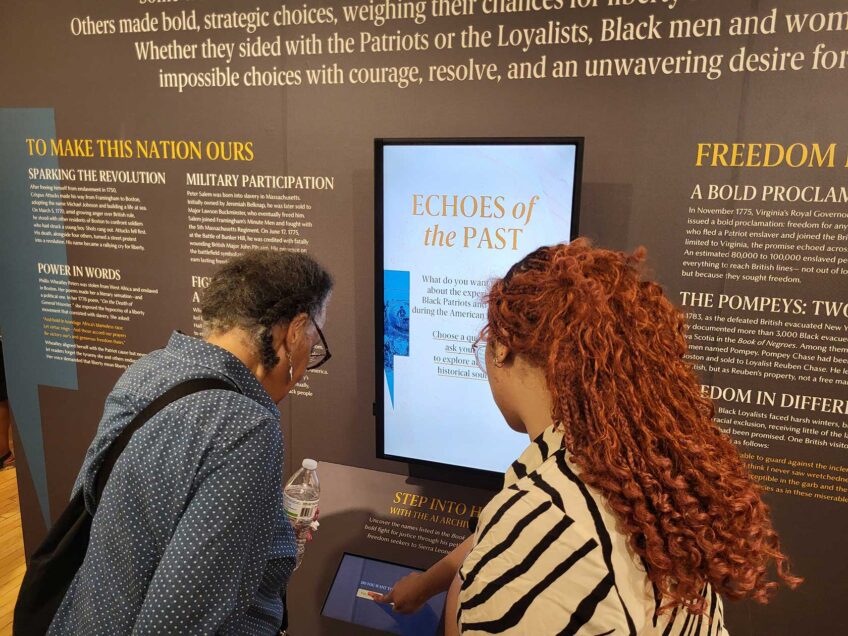Hanging high in the chambers of the Massachusetts House of Representatives is the wooden sculpture of a cod fish — a silent reminder of what was once the backbone of state’s economy.
If the dreams of Gov. Deval Patrick and top lawmakers come true, the “sacred cod” may one day be swapped for a “sacred hydrogen fuel cell,” “sacred photovoltaic panel” or even a “sacred wind turbine.”
In his first two years in office, and with the help of a Democrat-led House and Senate, Patrick has set about imagining a new economy for the state.
From clean energy to biotechnology, casinos to filmmaking, Patrick has pushed to diversify the state’s job base beyond the traditional areas of financial services, manufacturing and high technology.
By seizing early ground in the development and production of new technologies, and backing up those efforts with investment dollars, Patrick hopes Massachusetts will avoid past mistakes where it sprinted to an early lead, only to see brains and capital slip away.
But big dreams don’t come cheap. Patrick’s signature effort, a 10-year plan to make Massachusetts a leader in life sciences, carries a $1 billion price tag. Another bill sponsored by House Speaker Salvatore F. DiMasi would funnel $13 million per year over five years into the development of “green jobs.”
Patrick said the new economy, with an emphasis on innovation in health care and clean energy, plays to Massachusetts’s natural strengths.
“It’s an economy that depends on innovation, on high tech, on brain power, on some of the assets that we have in concentration already here in the Commonwealth,” Patrick said.
Not everyone is as enthusiastic.
Patrick has had to fend off criticism from the state’s longtime industries and business owners who are feeling left out.
“We are concerned about businesses and industries that have made significant investments who wouldn’t benefit from these initiatives,” said Brian Gilmore, of the Associated Industries of Massachusetts, which represents 7,000 Bay State employers.
Add that to Patrick’s signing of a new state budget that relies on $285 million in new revenues from closing so-called corporate tax “loopholes” — and his recommendation that employers kick in another $33 million to help bail out the state’s landmark 2006 health care — and not everyone is cheering.
“We need an economic growth strategy that will benefit all parts of the state,” Gilmore said.
Not all of Patrick’s efforts have been so cutting edge.
Along with the Legislature, Patrick pushed for film tax credits that have lured big-budget movies to Massachusetts.
He also pushed a plan to license three resort-style casinos here — an effort opposed by DiMasi. That bill died in the House, but could be re-filed next year.
But Patrick’s main focus has been on innovative technologies.
Colin South is president of one of the companies at the forefront of the new economy. Mascoma Corporation is pursuing the next generation of biofuels with cellulosic ethanol technology.
South said Massachusetts is an ideal incubator for companies like his, which rely on access to venture capital and a highly trained workforce.
“In Massachusetts, people understand the startup culture and have the skills that we can apply rapidly and that is a huge advantage,” he said.
State Environmental Secretary Ian Bowles said the state’s rush to lure and nurture clean energy and biotechnology companies isn’t meant as a slight to other, more traditional businesses, but is a recognition by Patrick that those newer companies are where the biggest potential growth now lies.
“It’s not saying that other parts of the economy aren’t vitally important,” he said. “But I think he’s really putting a priority in these areas because these are industries that are going to grow nationwide.”
Bowles pointed to one of the biggest generators of new, cutting edge technology firms — the Massachusetts Institute of Technology (MIT), which has helped give birth to companies like Watertown-based A123Systems, one of the world’s leading suppliers of high-power lithium ion batteries.
Patrick said those kind of success stories are good for the environment and for the struggling Massachusetts economy.
“What a great thing to be able to address our energy needs, our environmental stewardship and grow the economy all at the same time,” Patrick said.
(Associated Press)






